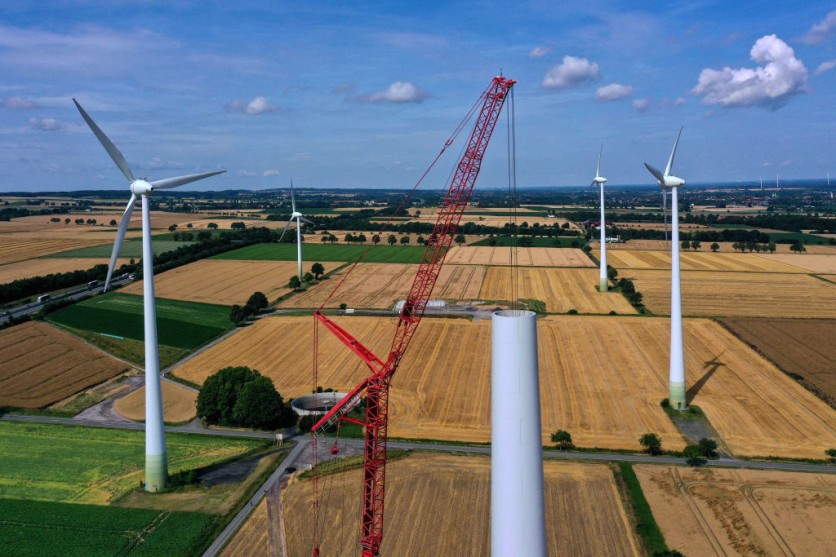A new study conducted by the non-profit organization RMI, in partnership with the Bezos Earth Fund, suggests that renewable energy is on its way to meeting ambitious net-zero goals by 2030.
The analysis reveals that solar, wind, and battery capacity rapidly increase and align with net-zero scenarios. The forecasts indicate that solar and wind energy will contribute over a third of the global power supply by 2030, a significant increase from the current 12%.
Furthermore, the cost of solar and wind is expected to reduce by half by 2030 due to major cost declines over the past decade.

Scaling Up Solar and Wind Energy
Research from Systems Change Lab supports these findings, showcasing that several countries have already demonstrated the feasibility of scaling up solar and wind energy faster than required to limit global warming to 1.5°C.
Uruguay, Denmark, Namibia, and the Netherlands are among these countries, proving that a rapid transition to renewable energy is achievable in diverse contexts.
The exponential growth in renewable electricity has reached a tipping point, indicating a transition away from fossil fuels that may be difficult to reverse.
Fossil fuel demand in the electricity sector is expected to plummet by the end of the decade as renewable energy becomes increasingly cost-competitive.
The COP28 goal of tripling renewables capacity by 2030 is now within reach, provided that certain barriers such as grid investment, streamlined permitting, improved market structures, and enhanced storage are addressed, according to the researchers.
By 2030, the forecast predicts that solar and wind will generate 12,000-14,000TWh of electricity globally, surpassing recent calls for a tripling of total renewable energy capacity.
Fossil fuel demand for electricity will decline by up to 30% from its peak in 2022 as renewable energy outcompetes hydrocarbons on cost.
Read Also : California's Recent Solar Energy Proposal Offers Millions of Dollars of Support for Low-Income Households
Renewable Deployment
While China and Europe lead in adopting clean energy technology, renewable deployment is becoming more distributed globally, including in the Middle East and Africa.
According to the study, the successful scaling of solar and wind generation in these regions showcases the potential for a rapid transition to renewable energy. The cost advantage of renewable energy is a significant driver of its exponential growth.
Prices have sharply declined over the past decade, with solar and battery costs falling by 80% and offshore wind costs down by 73%. This trend is expected to continue, making renewable energy increasingly affordable and competitive in most markets.
"Exponential growth of clean energy is an unstoppable force that will put more spending power in the pockets of consumers," Kingsmill Bond, Senior Principal at RMI, said in a statement.
"The benefit of rapid renewable deployment is greater energy security and independence, plus long-term energy price deflation because this is a manufactured technology - the more you install the cheaper it gets," Bond added.
Related Article : Japanese Government Explores Remotely Controlling Privately-Owned ACs & Water Heaters as They Switch to Renewables

![Apple Watch Series 10 [GPS 42mm]](https://d.techtimes.com/en/full/453899/apple-watch-series-10-gps-42mm.jpg?w=184&h=103&f=9fb3c2ea2db928c663d1d2eadbcb3e52)



